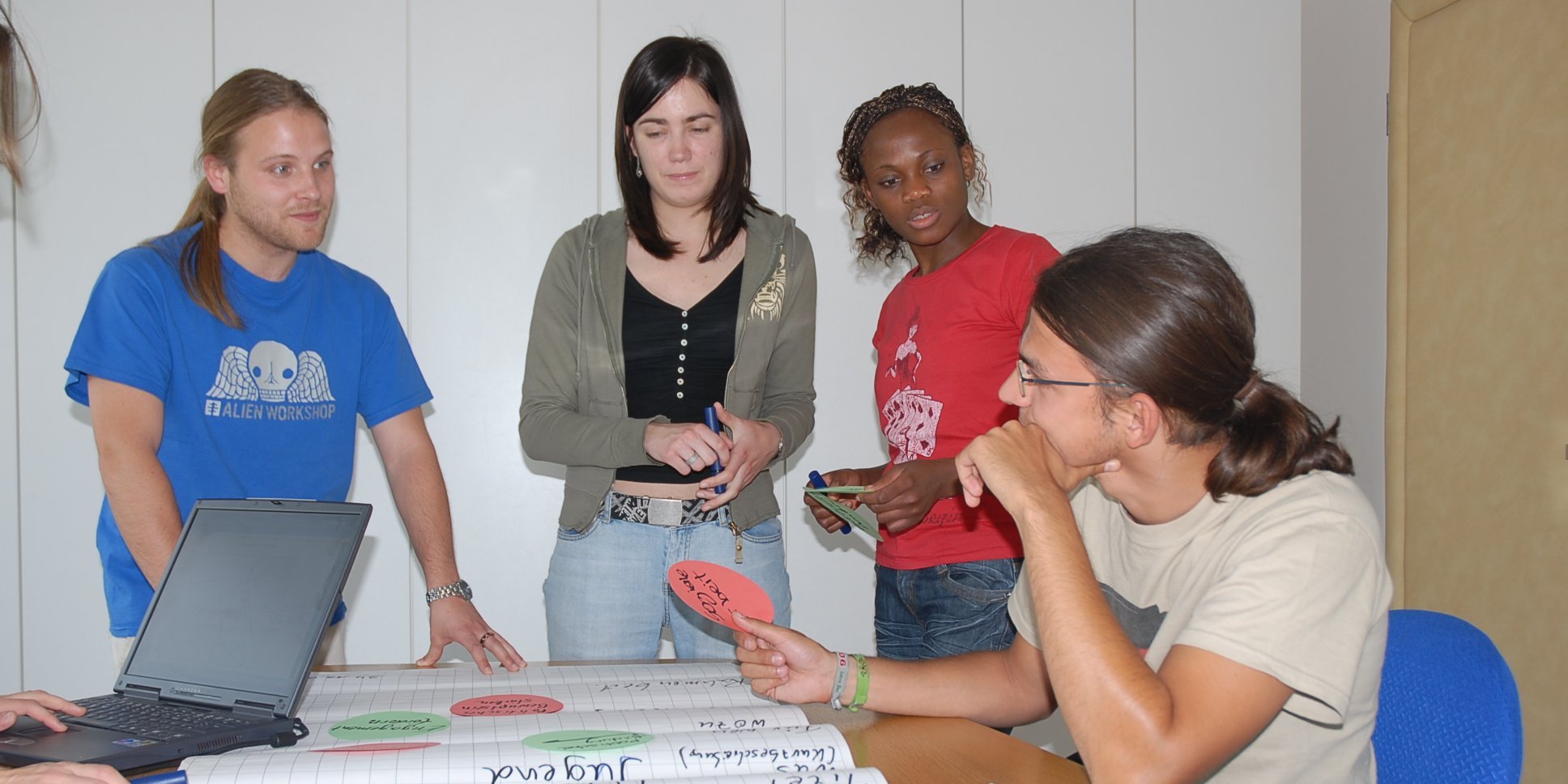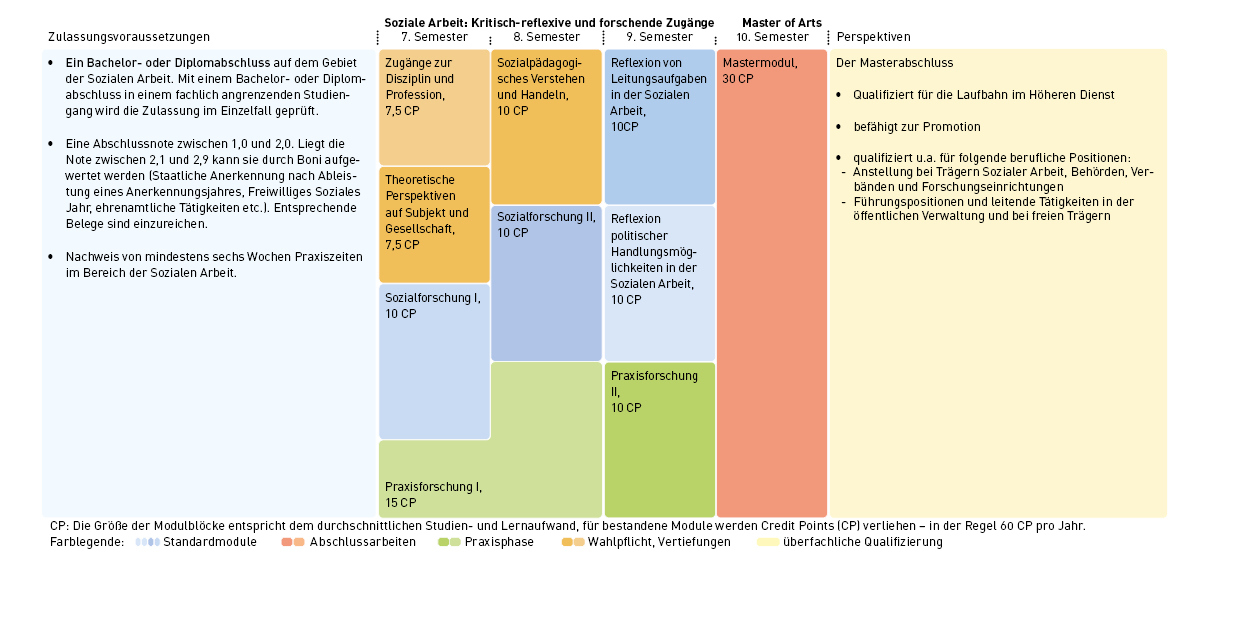
Social Work: Critically reflective and empirical approaches (Master of Arts)
| Semester | 4 Semester |
| Darmstadt | |
| Winter semester | |
| GER | |
| * |
Content
Over four semesters, our Master’s degree course ‘Social Work’ employs a critical, yet reflective and explorative approach, to convey the in-depth knowledge and skill sets professional social workers require. The course can be characterised by its emancipatory perspective of the challenges inherent to social work. To this end, the course focuses on consolidating and intensifying a critical, yet reflective, approach to psycho-social problem areas; to theories, methods and guiding paradigms of social work; to social-educational based comprehension and case-focused involvement; to potentials for development, participation and emancipation of the people concerned – as well as the inherent political meaning and underlying value of social work. Finally, students are also able to appropriate such an approach by participating in intensive didactic research projects, which delve into practical social work fields that are of personal interest to them. Further information is available at the website of the Faculty of Social Work.
Perspectives
Graduating from a Master’s Social Work degree course opens up, among others, the following professional opportunities:
- Employment at public or private social work agencies, public authorities, associations and research establishments.
- Access to managerial positions and supervisory roles.
- In public administration (higher positions) and private agencies.
- Aptitude and qualification for promotion
After a Master's degree, there is the possibility of a doctorate. The central contact point is the Graduate School.
Structure
The course comprises four areas in total: theory and consideration (including theory and methodology; comprehension and involvement; theoretical approaches focussed on subject or social circumstances; possibilities for guidance and policy-shaping – accompanied by thought-provoking events), social research (methods of conducting surveys and their evaluation) as a prerequisite for supervised, intensive tri-semester practical research (students’ own research projects), as well as the master module (including seminar). A detailed description of the course curriculum is presented in the module manual (German).
Further education
In addition to the Master's programme, the voluntary further education course "Introspection and Empathy" is offered exclusively for Master's students and is subject to a fee. This further training offers protected self-experience spaces over a year (in the 2nd and 3rd semesters). They are designed to develop the skills and empathy as important competencies of social pedagogical professionalism and to help participants learn about the motives for their choice of profession, how they deal with closeness, distance and difference, as well as their readiness to deal with conflict, so that these do not flow unreflectively into the socio-educational relationship work. Further information: www.fbs.h-da.de (German)
*Access
- A Bachelor’s or Diploma degree graduation in the field of social work, whereby for a Bachelor’s or Diploma degree graduation from a related specialist course, admission will be assessed on a case-by-case basis.
- A graduation grade between 1.0 and 2.0. Graduation grades between 2.1 and 2.9 may be upgraded through bonus points (through state accreditation upon completion of a probationary year, voluntary social work year, voluntary activities, etc.). Corresponding certification must be submitted.
- Certification of at least six weeks of practical activities in the field of social work.
A detailed description of admission prerequisites are presented at the Special Provisions of the Examination Regulations (German) as well as at the Admission Regulations (German).
The application deadline has been extended. Please inform yourself under application deadlines.
Contact
Prof. Dr. Mario Rund
+49.6151.533-68754
mario.rund@h-da.de
1
Consultation
Nach Vereinbarung.
